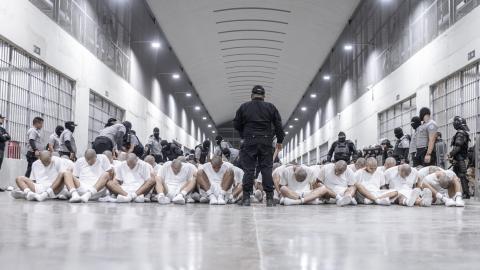
El Salvador has formally stated that legal custody of over 130 Venezuelan migrants detained in its maximum-security prison remains with the United States, contradicting claims by the Trump administration that it no longer has authority over the individuals. The declaration is part of a court filing submitted in the U.S. District Court for the District of Columbia.
The filing, presented by lawyers representing four migrant families, includes a Salvadoran government response to a United Nations inquiry that states: "The jurisdiction and legal responsibility for these people lie exclusively with the competent foreign authorities," referring to the United States.
"These documents confirm what we long suspected," said Lee Gelernt, lead attorney from the American Civil Liberties Union (ACLU) to The Washington Post. "The U.S. is still legally responsible for these individuals."
The migrants were taken in March from U.S. immigration detention centers to El Salvador's Terrorism Confinement Center (CECOT) under the Alien Enemies Act—a law invoked by the Trump administration to remove individuals it labeled national security threats. The U.S. is paying the Salvadoran government $6 million to detain them for one year.
While the Trump administration has argued that the migrants are members of Venezuelan gang Tren de Aragua and that it no longer holds custody over them, the Salvadoran statement filed in court suggests otherwise.
The legal dispute comes amid growing scrutiny of the U.S.–El Salvador arrangement. A recent report by The New York Times revealed that the deal between Trump and Bukele may have undermined ongoing U.S. investigations into MS-13 leadership and potential ties between the gang and Bukele's government.
Operation Vulcan, launched during Trump's first term, had been making progress toward dismantling the MS-13 leadership in both the U.S. and El Salvador. But as Trump returned to power and prioritized aggressive immigration crackdowns, he struck the Bukele deal—effectively sidelining the investigation. Prosecutors were even asked to consider dropping charges against some MS-13 members to facilitate their deportation.
"It was a corrupt deal," said lawyers for a defendant in one of those cases, warning that deporting key suspects could "silence" them.
© 2025 Latin Times. All rights reserved. Do not reproduce without permission.





